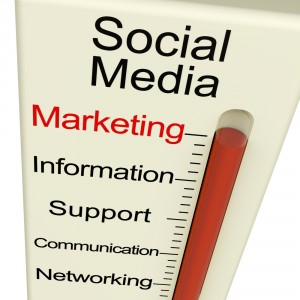Social media advertising, and social media in general, are not proven ways to increase sales.
 Doubt over the profitability of social media brand marketing has only grown in recent months as advertisers and investors have grown skittish about the longterm viability of the practice.
Doubt over the profitability of social media brand marketing has only grown in recent months as advertisers and investors have grown skittish about the longterm viability of the practice.
Marketers have always struggled to measure success on sites like Facebook and Twitter. In fact, many times, they have no idea of even how to define success.
In the buildup to its initial public offering announcement, Facebook looked like a worthy investment for advertisers. However, in light of recent events, such as GM’s decision to end Facebook advertising due to poor results and the shaky start the stock has had, advertisers may begin to turn elsewhere to make their money.
“Four out of five Facebook Inc users have never bought a product or service as a result of advertising or comments on the social network site,” according to a poll by Reuters/Ipsos released Tuesday. In addition, Facebook’s click through rate is less than 0.05 percent, and it doesn’t offer mobile advertising options, a growing market.
The highly popular social network is the number one site marketers turn to when they spend revenue on advertising. But it seems that on a site with 900 million users, there is a lot of money to be made that just isn’t being made.
Is there something wrong with the perception that social media marketing is the way of the future? Have we miscalculated?
The results of the Reuters/Ipsos poll this week seem to support what many marketers and advertisers have feared: That social media just isn’t effective, or that it’s not worth their time.
However, other industry analysts say that when companies look beyond that hard data, they can connect the dots and maybe see just how effective their social media campaigns can be if approached with the right resources and expectations.
A survey conducted by MDG Advertising found that overtime, “social media prompts significant drops in marketing costs.” Along with saving money on campaigns, 45 percent of marketers who invested in social media strategies said they formed new partnerships, and 72 percent said it helped them close business deals.
Social media marketers can’t always expect a direct and tangible return on investment. In fact, on social media sites, customers don’t want to be sold products. Just ask CEO of Facebook Mark Zuckerberg, who is against advertising (but makes most of his money on the site off of it).
Many industry experts are advising that instead of throwing money away on Facebook ads that don’t connect with users, marketers need to come to the realization that users are more interested in engagement.
“To only be able to say ‘we have X number of fans who ‘like’ us’ without being able to understand how valuable those fans are doesn’t help you understand how successful your campaign is,” ClickZ Marketing’s Liana Evans writes. “Ask yourself, what do your fans do once they ‘like’ you? If all they do is hit the ‘like,’ ‘+1,’ or ‘Follow’ buttons and there’s no engagement, have you just wasted your ad spend?”
Instead, she suggests, when it comes to social media, companies should ask themselves, “What can I do for my customer?”
They can start by offering them discounts, listening to their concerns, and connecting with them by way of interesting content.
Strengthening relationships between the business and the consumer is how Facebook and similar sites should be used–not just to sell products. That’s what outbound marketing is for.
Image courtesy of Stuart Miles/shutterstock